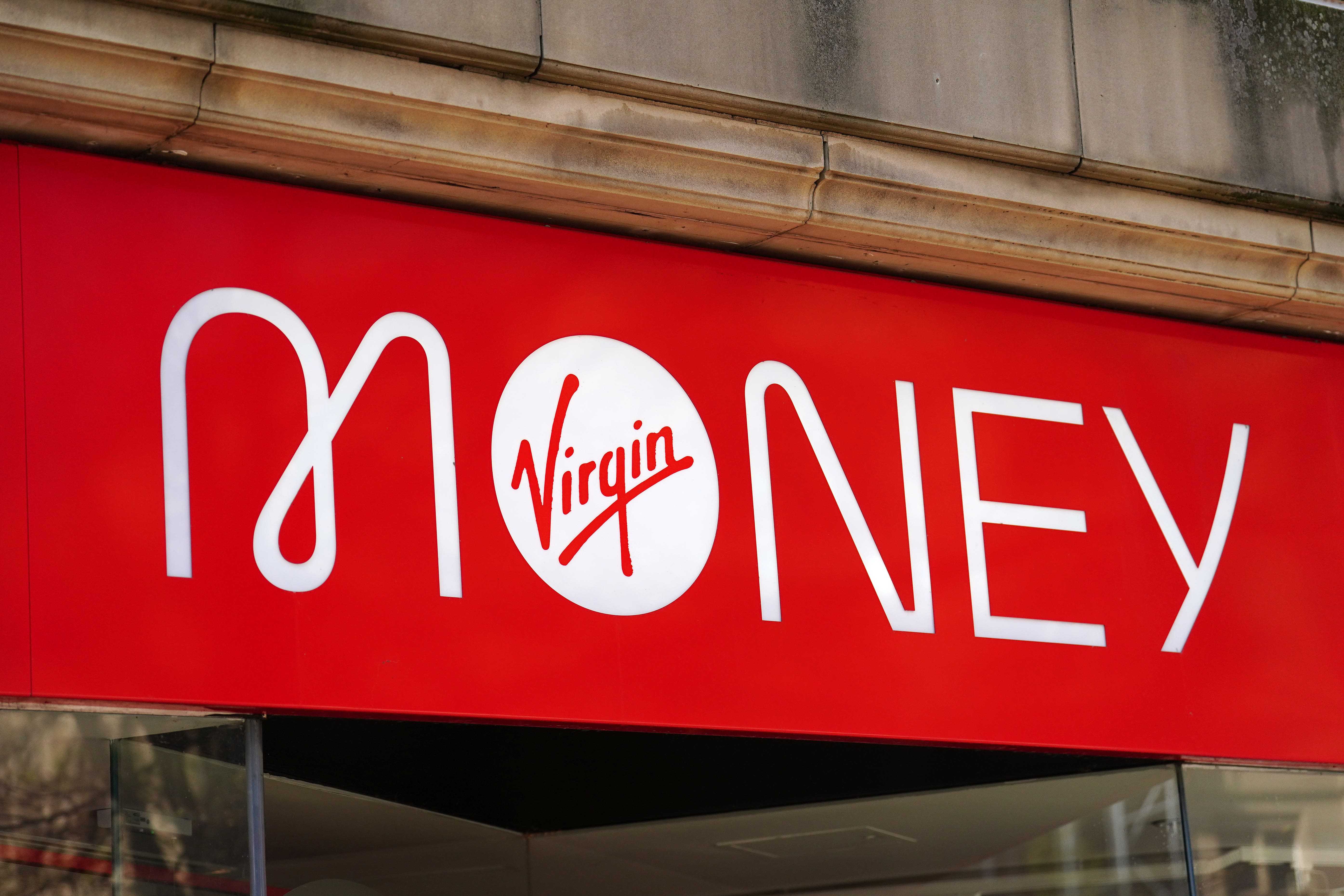Virgin Money sees shrinking profits as debt provisions multiply
The lender has set aside £144 million to cover expected bad debts, up more than six-fold on the previous year.

Challenger bank Virgin Money has reported shrinking profits as it cautioned over a jump in borrowers defaulting on their loans.
The lender, which was founded by entrepreneur Sir Richard Branson, said its underlying pre-tax profit fell by 23% to £312 million in the six months to March 31, compared to the same period a year ago.
It came as the bank set aside £144 million to cover expected bad debts – meaning when a borrower cannot repay a loan and it is written off.
The provisions are more than six times the £21 million set aside last year.
Virgin Money said it is anticipating an increase in customers falling into arrears, as UK businesses and households see affordability squeezed by interest rate rises and high inflation.
The number of customers in financial distress remains low, but we continue to expect arrears numbers to increase as the credit cycle normalises
It added that swap rates – which lenders use to price mortgages – had been “volatile” during its first financial quarter, with the failures of Silicon Valley Bank and other US regional banks and Credit Suisse sending jitters through the financial markets.
Shares in Virgin Money suffered a sell-off in the aftermath of the banking turmoil last month, with its share price dropping by more than a fifth this year.
The company said: “Recent rate rises and ongoing inflationary impacts have seen affordability tighten for many UK businesses and individuals, and the group remains ready to support our customers as required.
“Pleasingly for now, the number of customers in financial distress remains low, but we continue to expect arrears numbers to increase as the credit cycle normalises, and have increased our provision coverage during the first half.”
Like other British banks, Virgin Money has benefited from higher interest rates, which were raised to 4.25% at the latest Bank of England meeting – the 11th increase in a row.
It saw its underlying net interest income – the difference between what it charges for loans and pays for savings – jump by 9% over the period to £855 million.
It also saw customers putting more money into the bank, with deposits growing by 2.6% to £67 billion.
Virgin Money chief executive David Duffy said: “More people are choosing to bank with Virgin Money.
“While the past six months have seen turbulence in the economy and in the financial system, we have continued to focus on our target areas, growing customer numbers and deposits thanks to our new and existing digital products.
“Further customer-centric product launches are coming in the second half of the year.”
The group has also invested in its cost-of-living support networks for customers, bolstering call centre teams and developing a hub with money saving suggestions and budgeting tools.
Call waiting times were down by around 75% compared to the same time last year following the investment, it said.
Bookmark popover
Removed from bookmarks